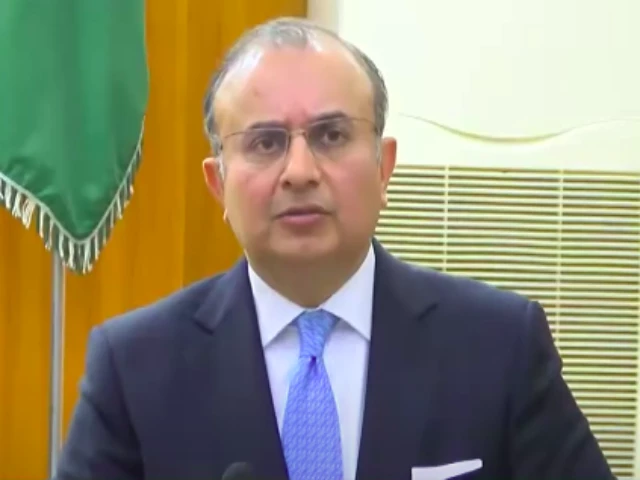The Bench recalls that the SC has earlier affirmed that any disadvantage arising from being a declared offender
ISLAMABAD:
The Supreme Court has ruled that being declared a fugitive or fugitive in a criminal case does not in itself bar a person from pursuing civil or service-related remedies.
In a five-page judgment authored by Justice Syed Mansoor Ali Shah, the apex court held that the continuation of criminal liability or the status of a declared offender, “however serious, does not operate to forfeit these indispensable civil rights unless the legislature has expressly imposed such disability”.
Justice Shah warned that reading such a bar into the law “would undermine the integrity of the judicial system and would in effect act as a double-edged sword”.
“An edge to deprive a citizen of the right of appeal or statutory remedies in matters affecting livelihood, service, pension, contractual obligations or financial obligations amounts to a denial of access to the courts, a core constitutional guarantee woven into Articles 4, 9, 10-A and 25.”
The decision came while answering whether a person’s status as a dodger automatically prevents them from invoking civil or service jurisdiction. A division bench headed by Justice Shah and comprising Justice Aqeel Ahmad Abbasi heard the case.
The judgment warned that such an exclusion “would not only undermine the principle that no person shall be treated except in accordance with law, but would also distort the function of the court from an instrument of justice into a mechanism of repression”.
It added that barring civil remedies on this basis “would erode the very guarantees that protect citizens from arbitrary action, undermine public confidence in judicial institutions, and compromise the constitutional promise that justice shall be administered fairly, transparently, and without discrimination.”
The court also highlighted how the doctrine could be weaponized by others. “The other edge would invite deliberate exploitation by clever and unscrupulous litigants.”
It warned that such individuals could weaponize a separate criminal label as a tactical means to exclude judicial review, insulate their conduct from scrutiny, and avoid accountability for impugned actions.
“The practical effect would be to give opportunistic litigants a license to oppress; by pleading preemption, they could foreclose an aggrieved party’s access to remedies affecting livelihood, service, property, or contractual rights, thereby denying them the procedural protections of notice, hearing, and appeal.”
Such abuse, the ruling noted, would make the doctrine “a cloak for malicious litigation that undermines the rule of law and deprives citizens of constitutionally guaranteed due process.”
Justice Shah further held that “Criminal liability has its own evidentiary thresholds and procedural safeguards which are neither applicable to nor determinative of service relationships”.
He observed that dismissing the petitioners solely on the basis of their alleged absence is therefore a clear misuse of law as it conflates two separate jurisdictions and deprives the petitioners of the determination of issues within their civil and service rights.
The court recalled that the Supreme Court has previously confirmed that any disadvantage arising from being a declared offender “normally relates only to the case itself in which the order is issued and does not include other matters that lack connection with this procedure”.
Thus, “a declared offender is not, merely by virtue of that status, barred from bringing or defending a civil action or prosecuting an appeal concerning his civil rights and obligations”.
The judgment added that unless a specific law expressly imposes such a disability, “the disqualification cannot be implicitly read into service jurisprudence”.
Justice Shah traced the origin of the rule barring fugitives from invoking appellate jurisdiction to the “Fugitive Disentitlement Doctrine developed in the United States”, which developed as an equitable rule in criminal cases.
He noted that in the United Kingdom similar consequences follow from “rules of procedure and practical necessity” where an appellant who has not surrendered may have his appeal dismissed.
Pakistan’s own jurisprudence has taken the “same procedural course” of requiring refugees to surrender before their criminal appeals are heard.
However, the court emphasized that this logic does not apply to civil or service cases. Within Pakistan’s constitutional framework – grounded in Articles 4, 9, 10A and 25 – “the right of access to the courts cannot be abridged simply because a person is accused or has disappeared in another legal domain”.
Therefore, “unless a statute expressly provides otherwise, or the fugitive provably obstructs judgment, absence in a criminal case cannot extinguish or suspend independent civil or service rights”.



